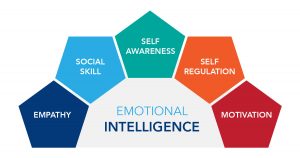Emotional intelligence, which involves skills like self-awareness, empathy, and emotional regulation, is highly relevant to the ethical practice of social work. Social workers need to be able to understand and manage their own emotions, as well as empathize with and respond appropriately to the feelings of their clients. This emotional competence is crucial for building strong therapeutic relationships, making sound ethical decisions, and providing practical, client-centered care. The search results indicate that emotional intelligence is critical in social work, as “emotions and power relationships are central to social work”3. Incorporating emotional intelligence training into mandatory ethics courses for LCSWs can help them develop the self-awareness and interpersonal skills needed to navigate the complex emotional landscape of social work practice.
Furthermore, California’s new social work degree standards require practitioners to “develop and maintain reflect on your own background experiences and practice that may have an impact on the relationship.”
Emotional intelligence training aligns well with this standard, as it helps social workers understand how their emotions and biases can influence their interactions with clients.
In summary, given the centrality of emotions and relationships in social work, integrating emotional intelligence into mandatory ethics training for LCSWs in California can be a valuable enhancement. It can help these professionals develop the self-knowledge and interpersonal skills needed to provide ethical, client-centered care.
On a personal note, I served as Vice Chair of the California Board of Behavioral Science for five years and as Chairman of the Examination Committee for four years.



